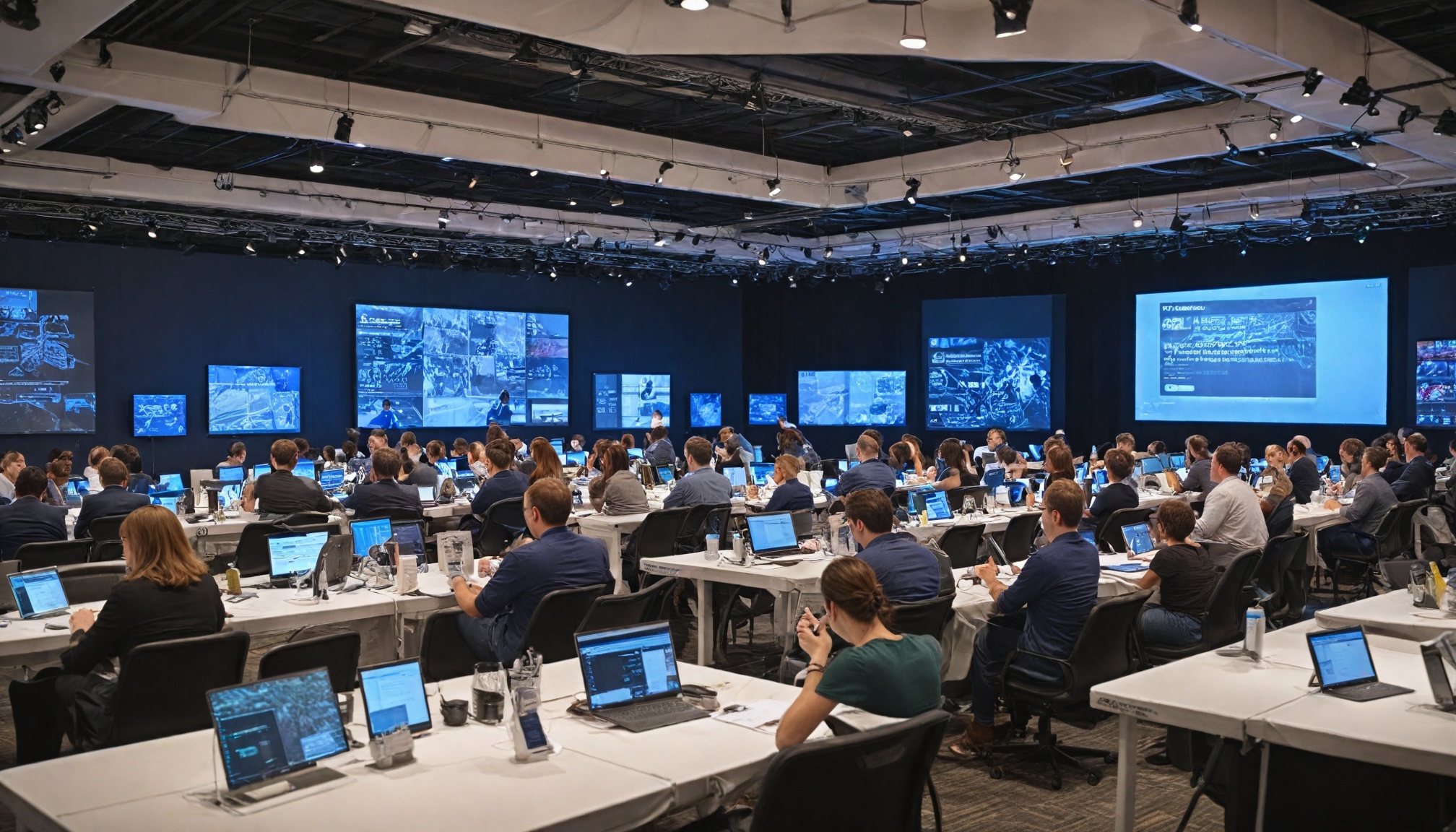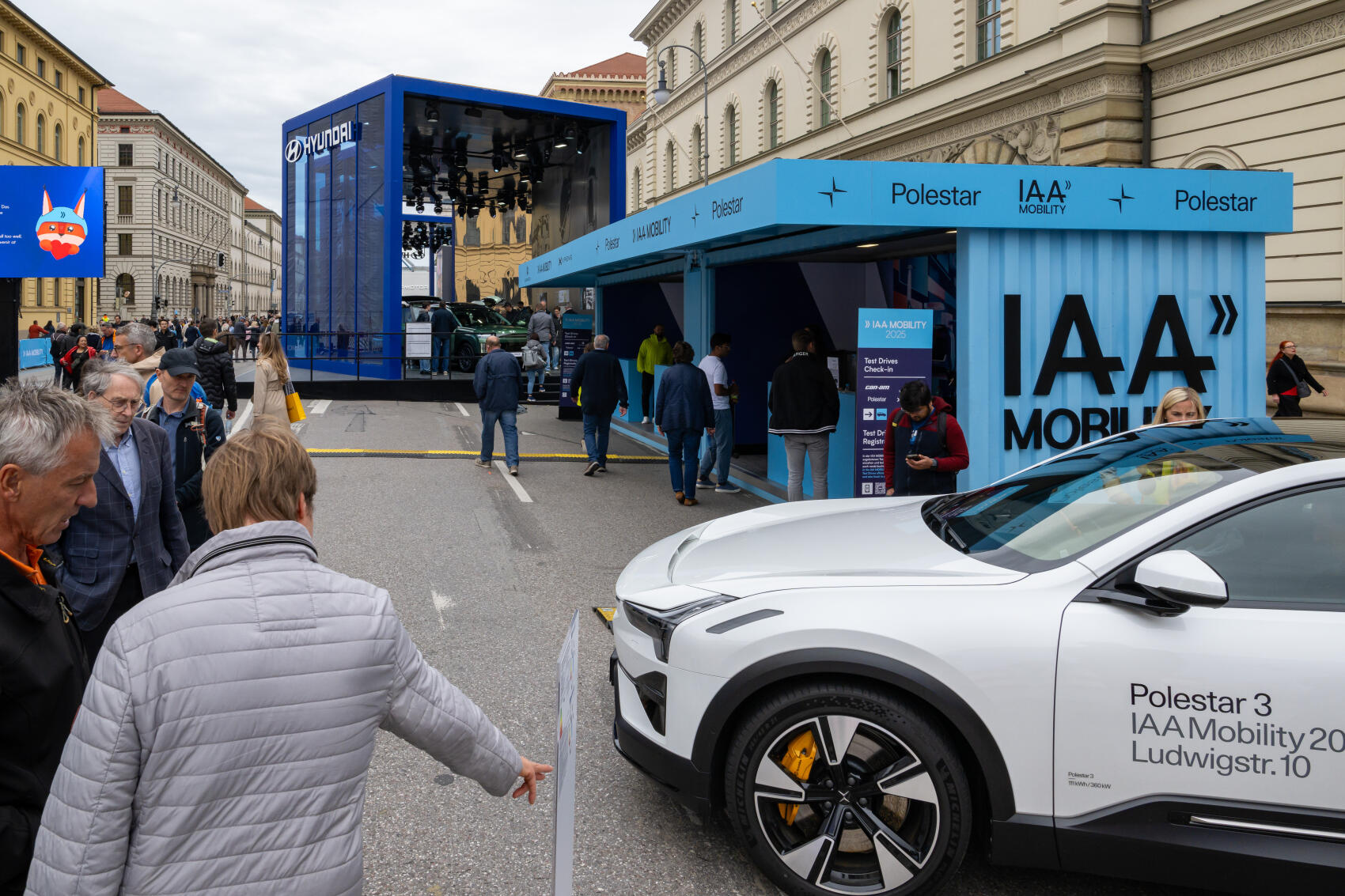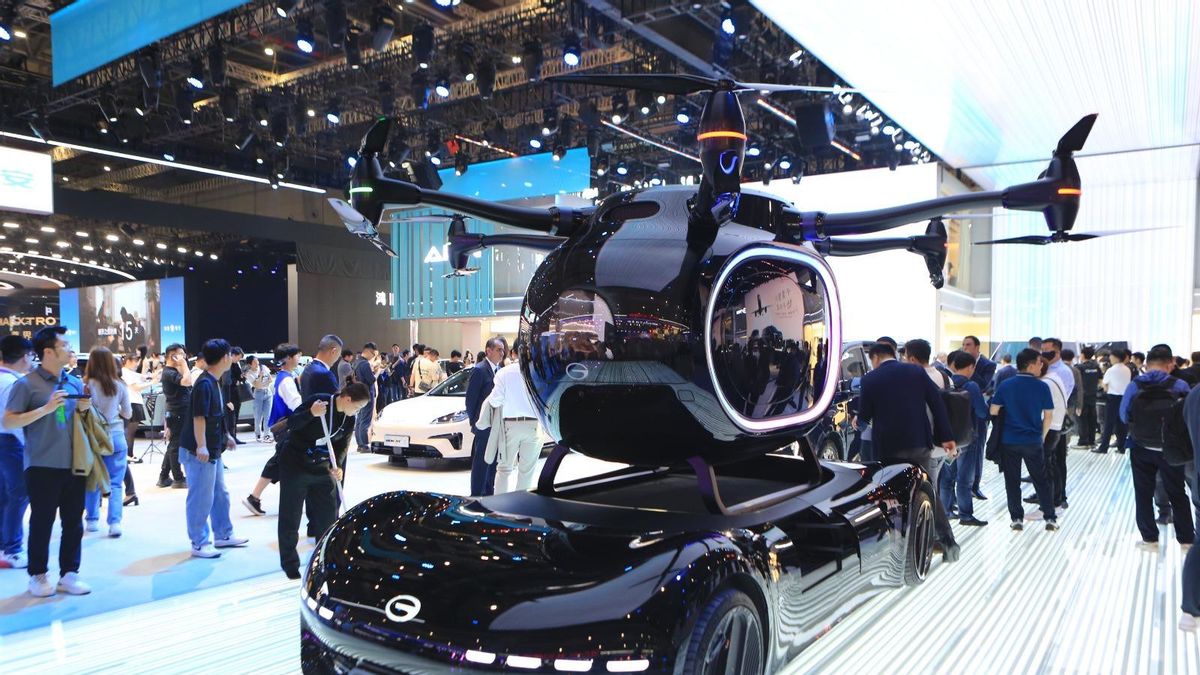
Hybrid events revolutionize business gatherings with 97% of professionals seeing them as essential, offering global reach, 80% higher engagement, and 15% more revenue than traditional formats.

Drivetech Partners
Hybrid events are revolutionizing the business gathering landscape in 2025, with an impressive 97% of event professionals now considering them essential and 73% actively planning to incorporate hybrid elements into their future events. This dual-format approach combines the irreplaceable energy of in-person connections with the global reach of digital participation, creating powerful new opportunities for engagement, analytics, and return on investment.
Key Takeaways
- The global hybrid event market is projected to grow by 23% over the next five years, with nearly 70% of planners reporting attendance increases of 30%
- Hybrid formats eliminate geographical barriers, with 68% of organizers incorporating virtual components specifically to expand their global reach
- Interactive technologies like live polls and virtual networking rooms can boost attendee engagement by 80% compared to traditional event formats
- Organizations report 15% higher revenue and 60% greater content consumption with hybrid approaches versus in-person-only events
- Hybrid events can reduce carbon emissions by 30% while maintaining or improving overall event effectiveness
Hybrid Events: Dominating the Future of Business Gatherings
The transformation of the events industry is happening at remarkable speed. With 97% of event professionals now viewing hybrid formats as essential to their strategy, we're witnessing a fundamental shift in how organizations connect with their audiences. The global hybrid event market is on track to expand by 23% through 2030, with 15% of all North American events expected to adopt this format by 2025.
This explosive growth isn't just industry hype – it's driven by measurable results. Nearly 70% of corporate event planners report a 30% increase in overall attendance after switching to hybrid formats. The demand from attendees themselves remains strong, with 84% wanting virtual participation options and 76% of organizers noting growing interest in these dual-format experiences.

Breaking Barriers: Global Reach and Enhanced Accessibility
One of the most compelling advantages of hybrid events is their ability to eliminate geographical limitations. By combining physical and virtual experiences, organizations can dramatically expand their audience size beyond traditional in-person constraints. This global reach isn't just theoretical – 68% of event organizers plan to incorporate virtual components in their next in-person event specifically to broaden their reach.
The flexibility of hybrid formats appeals to attendees as well, with 45% valuing the ability to choose between in-person or virtual participation based on their situation. This approach significantly enhances accessibility and inclusivity, opening participation opportunities for those with mobility challenges, scheduling conflicts, or budget constraints that might otherwise prevent attendance.

Maximizing Engagement Through Innovative Interaction Tools
Far from creating passive viewing experiences, modern hybrid events can boost attendee engagement by 80% and increase overall event attendance by up to 50% compared to traditional formats. This enhanced participation comes through innovative interaction tools that create immersive experiences for all participants.
The most effective hybrid events now incorporate several key engagement elements:
- Live polls and real-time voting
- Interactive Q&A sessions accessible to all attendees
- Virtual networking rooms that connect in-person and online participants
- Personalized content recommendations and agenda builders
- Gamification elements that drive participation across both formats
These features aren't optional extras – they're becoming standard expectations. With 85% of event organizers now prioritizing attendee engagement as a strategic focus, the bar continues to rise. This investment pays off, with hybrid events offering more networking opportunities (according to 63% of professionals) and higher attendee satisfaction rates (85%) compared to single-format events.
The Business Case: ROI, Cost Efficiency, and Expanded Sponsorship Opportunities
The financial benefits of hybrid events are compelling enough to drive continued adoption, with 67% of event planners expecting higher ROI from hybrid events than from purely in-person gatherings. This dual-format approach creates notable efficiency, reducing travel, venue, and catering costs while increasing organizer revenue by up to 15% and content consumption by 60%.
Sponsors are taking notice too. Nearly 75% of sponsors find hybrid events more effective for lead generation and brand awareness. The hybrid model creates diverse, data-rich engagement channels that expand sponsorship opportunities beyond traditional booth spaces and logo placements. Companies can now offer tiered sponsorship packages with both digital and physical components, creating more valuable partnerships.
Data-Driven Success: Technology and Analytics Powering Event Optimization
The technology enabling hybrid events has matured significantly, with advanced event platforms now integrating interactive tools, real-time updates, personalized session tracks, and comprehensive analytics dashboards. These technologies generate valuable data-driven insights allowing organizers to adapt strategies during the event to maximize impact.
Looking toward 2025, several technology trends are emerging as critical for successful hybrid implementations:
- Higher-quality audio-visual production that creates parity between in-person and virtual experiences
- Enhanced live-streaming capabilities with minimal latency and multiple viewing options
- Purpose-built hybrid-ready stage designs that accommodate both physical and digital audiences
- AI-powered content recommendations and networking suggestions
- Comprehensive analytics that track participant engagement across both formats
The ability to collect and analyze participant data from both in-person and virtual attendees provides unprecedented insights for future event planning. This wealth of information helps organizers make data-backed decisions about content, format, timing, and attendee preferences.
Sustainability Benefits: Reducing Environmental Impact Without Sacrificing Results
Beyond the business advantages, hybrid events contribute significantly to environmental sustainability by reducing travel and on-site attendee numbers. This format can lower carbon emissions by up to 30% compared to traditional in-person-only events – a benefit that resonates with increasingly eco-conscious audiences and organizations.
Over half of event professionals now consider sustainability an important factor in their event strategy. By adopting hybrid approaches, organizations can demonstrate corporate social responsibility commitments while maintaining or even improving event effectiveness. This alignment of business goals with environmental benefits creates a compelling case for hybrid adoption.
Overcoming Challenges: Balancing Physical and Digital Experiences
Despite the benefits, creating successful hybrid events isn't without challenges. Nearly half (49%) of marketers cite creating equally strong experiences for both in-person and virtual attendees as their biggest hurdle. Maintaining experiential parity between physical and digital audiences requires careful planning and thoughtful technology integration.
Technical difficulties present another obstacle, with 34% of organizers finding the connection between virtual and in-person components challenging. Despite these issues, the industry is becoming more strategic about hybrid implementation. Event planners are increasingly selective about when and how to use hybrid formats, with 57% of exhibition companies seeing a push for hybrid in 2023, down from 80% in 2021 – indicating a more mature, targeted approach rather than adopting hybrid for every situation.
Learning from Leaders: Success Stories Shaping the Industry
Major events like South by Southwest (SXSW) and the Consumer Electronics Show (CES) have successfully leveraged hybrid approaches, providing valuable blueprints for implementation. These high-profile gatherings draw thousands of attendees both in-person and online with diverse content offerings tailored to each audience segment.
The most successful hybrid events share common characteristics: they combine strategic in-person components with virtual elements that complement rather than compete with each other. They recognize the unique strengths of each format and design experiences that leverage these differences rather than forcing identical experiences across both channels. These case studies demonstrate how organizations can maintain meaningful connections while dramatically expanding their global reach.
Sources: Eventify.io - What is a Hybrid Event, Cvent - Event Statistics, Swoogo Events - Event Statistics, Market.us - Virtual Events Statistics, Electro IQ - Virtual Events Statistics, Tradeshow Labs - Trade Show Stats, MPE Event Group - The Rise of Hybrid Corporate Events in 2025






